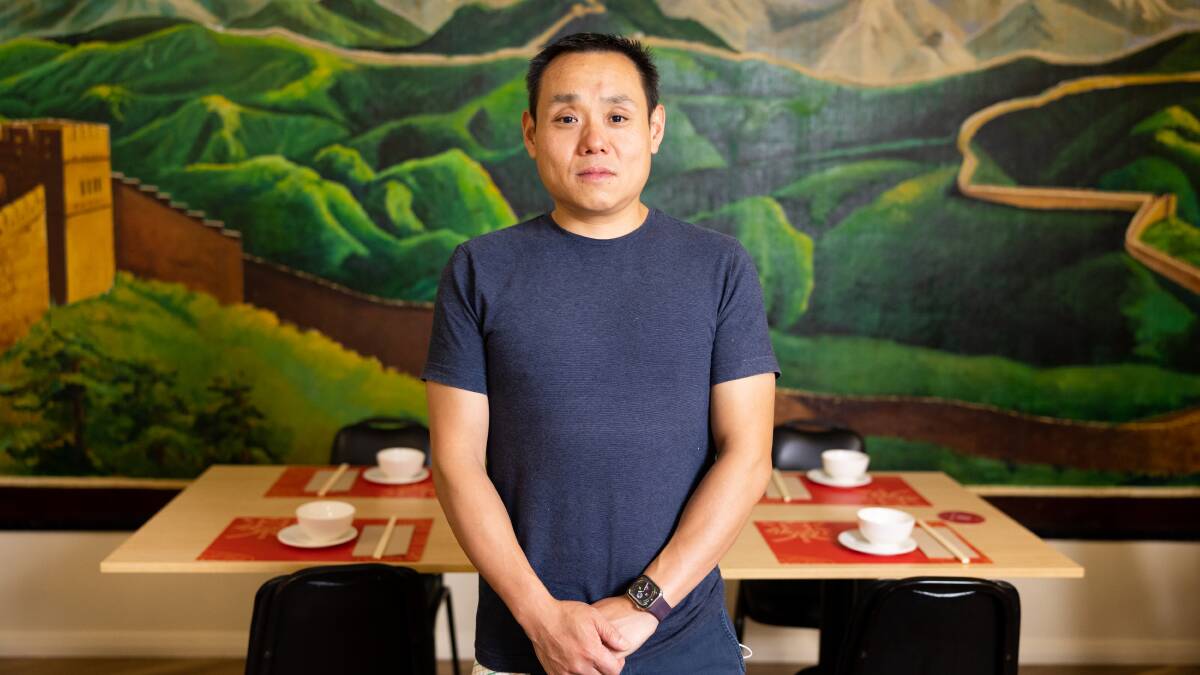
A week ago, Canberra business owner Gavin Chan's forecast for the future of his decades-old Civic restaurant was one obscured by "doom and gloom".
Speaking last Monday, Mr Chan, who owns Happy's Chinese, lamented empty tables, the decimation of lunchtime trade and the irregular demand from diners.
But a single weekend of trade without restrictions on customer density has swept life back into Mr Chan's basement venue.
"Being in business for so long, you can really feel the body language and just the excitement of the weekend," Mr Chan said.
"It just really felt like it turned a corner, it really did. I just saw all the businesses around the city on Friday and Saturday night just all full, everyone was buzzing."
Questions remain about future of office work
Businesses have been fatigued by months of floundering, as government financial support dried up and the post-lockdown rebound was interrupted by rising Omicron cases.
Mr Chan said the last weeks of the year saw a drop off of about 20 to 30 per cent in the restaurant's sales as people retreated. January was tougher still, with takings down about 40 per cent, he estimated.
The subsequent boost in trade, whether or not it lasts, has been deeply appreciated at Happy's Chinese.
However, flexible working arrangements adopted across the public and private sectors have emerged as a quandary for businesses like his over the course of the pandemic.
Mr Chan estimated he lost about 80 per cent of his usual lunchtime trade over January.
From December 30, the territory government's advice had been that people should work from home where it suited the employee and employer. That advice was scrapped alongside density limits and restrictions on singing and dancing.
However, ACT Chief Minister Andrew Barr also said last year that the era of in-office 9-to-5 work was over for the territory's public servants.
Mr Chan said he was hearing from his customer base that many were returning to nearby offices, but he did harbour concerns for the future of office work in Civic.
"You've got to adapt to that as well - there's nothing you can do about it if that's the way society is heading," he said.
"I suppose you've really just got to face that head on and think of other ways to innovate and change the whole business model, but that's completely out of my hands."
Staffing shortages the imminent challenge
Still, the most immediate hurdle will be addressing staffing shortages, an issue weighing on hospitality businesses across the country who have been starved of access to international students and visa holders.
"I used to have a workforce out front of house at my peak times ... [of about] 14 casual/part-time ... uni students," he said.
"And now I'm down to three people."
As a family-run business, he said he relies on help from his daughters when things get tough.
Australia's international border reopened to tourists from Monday, while fully vaccinated international students have been allowed to enter since December 2021.
"I keep thinking 'they're coming back, they're coming back', but there's just been no interest at all, in terms of people coming down and asking me for a job," he said.
"This hospitality job market, it's never been like this."







